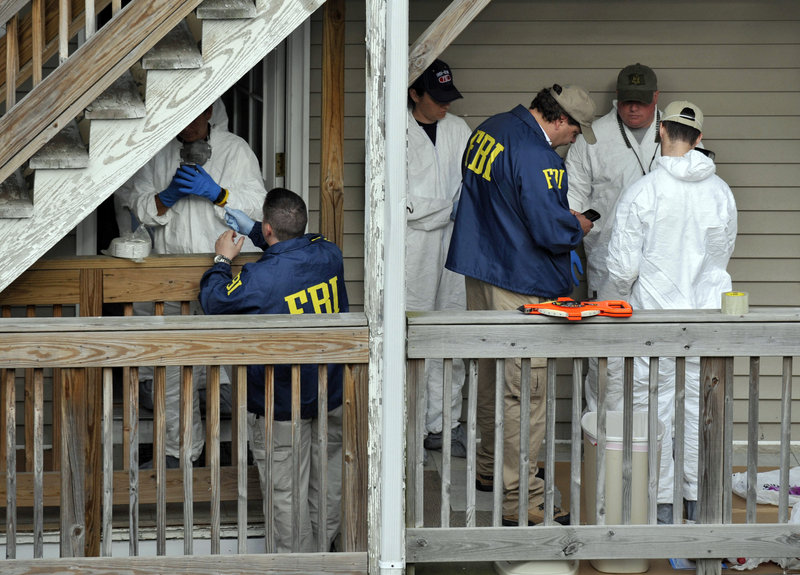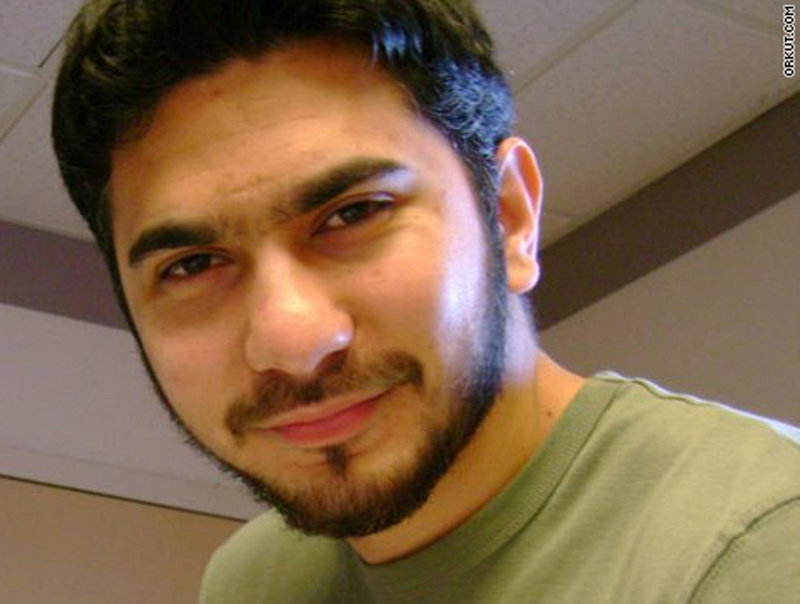WASHINGTON – The failed bombing in New York’s Times Square is a possible signal that militant leaders in Pakistan have shifted their focus to targets in the United States and other Western countries instead of sticking to their home base, according to U.S. counterterrorism officials.
The attack, they also warned, could be only the first by terrorist groups that seek to avoid detection by using simpler methods that are more independently planned.
U.S. investigators and intelligence agencies are trying to establish whether accused bomber Faisal Shahzad was trained or recruited for the Times Square operation by any Pakistan-based terrorist organization, including the Pakistani Taliban. Shahzad, a U.S. citizen of Pakistani descent, spent five months in Pakistan before returning to the United States in February and preparing his attack.
Shahzad has told investigators that he trained in the tribal areas of Waziristan, where both al-Qaida and the Pakistani Taliban operate. He was arrested aboard an Emirates Airlines jet in New York minutes before it was scheduled to take off for Dubai.
A senior military official said investigators believe Shahzad had bomb-making training in Pakistan, sponsored in part by elements of the Pakistani Taliban.
If those suspicions prove correct, it suggests that groups based in Pakistan, including the Taliban along the Afghan border, may be taking a more global approach after years of focusing attacks largely on government or coalition forces in their region.
That focus could stem from the Taliban’s continued close association with senior al-Qaida leaders, who are believed to be hiding on the border of Pakistan and Afghanistan, said one former Obama administration official.
The former official said the Pakistan Taliban may be another potential al-Qaida affiliate that wants the United States out of Afghanistan and the Pakistan army out of their villages. After months of intensified attacks from drone aircraft, mainly by the CIA in a classified program, Taliban leaders may be more intent on going after the United States.
One counterterrorism official said the groups were “deadly enemies of the United States” before the United States began destroying their leadership, fighters and camps from the air.
Counterterrorism officials say the Times Square attempt also shows a continuing shift to opportunistic attacks by the Pakistani Taliban and other militant groups that don’t have much money for overseas operations. So they use whatever method they can afford, wherever they happen to find a willing operative. As a result, U.S. authorities must figure out how to deal with less predictable patterns of behavior.
Officials say one major concern is that terrorist groups could send people to the United States to train homegrown extremists instead of people going to Pakistan or elsewhere for training.
Pentagon press secretary Geoff Morrell said the alleged bomber’s possible links to the Pakistani Taliban will not change the U.S. approach to Pakistan or support for Pakistan’s step-by-step approach to confronting internal terrorism threats.
“We are in the passenger seat, they are behind the wheel,” Morrell said. “They are the ones who are going to determine the direction, the pace, the speed of their operations.”
Morrell said he had no information on whether the suspect trained at a terrorist camp in North Waziristan, a sanctuary for militants who attack U.S. forces in Afghanistan.
“There is a recognition on everybody’s part that all the terrorist safe havens in Pakistan must be dealt with,” Morrell said.
Juan Zarate, President George W. Bush’s former deputy national security adviser, agreed that the Times Square attack may mark a new chapter in the terrorist threat.
“The model may be shifting here, in part because they may have made a calculus that it’s much more difficult to have a big ticket attack, and secondly, they may have moved to a model of disruption rather than destruction,” he said.
Zarate added that the sloppiness of the attack has raised questions, as U.S. officials work to unravel Shahzad’s possible ties to terrorist organizations in Pakistan.
“If he was trained, he was trained pretty poorly,” said Zarate, who is now a senior fellow at the Center for Strategic and International Studies.
He said it may be, in part, a reflection of the pressure that the United States and the Pakistani military has put on the militant cells in Pakistan. It may suggest the poorer quality of training available or the lack of higher quality recruits that they’ve been able to attract.
“Maybe they weren’t quite sure about this guy, so they gave him a little bit of training and, kind of threw spaghetti at the wall,” Zarate said.
Send questions/comments to the editors.




Success. Please wait for the page to reload. If the page does not reload within 5 seconds, please refresh the page.
Enter your email and password to access comments.
Hi, to comment on stories you must . This profile is in addition to your subscription and website login.
Already have a commenting profile? .
Invalid username/password.
Please check your email to confirm and complete your registration.
Only subscribers are eligible to post comments. Please subscribe or login first for digital access. Here’s why.
Use the form below to reset your password. When you've submitted your account email, we will send an email with a reset code.